Behind Origin Energy boss Frank Calabria’s call to keep the lights on
June’s east coast energy crisis was a wake-up call for everyone that all of the major players need to come together.
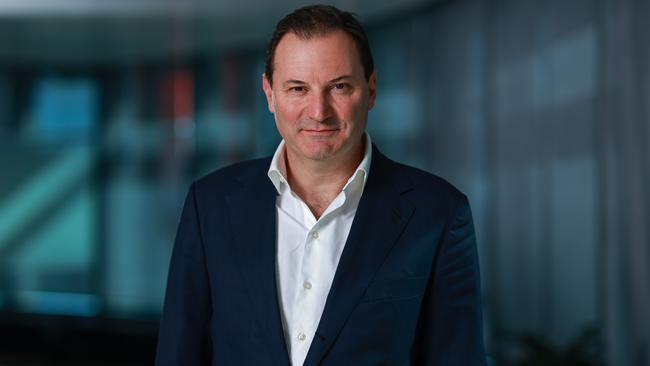
Business
Don't miss out on the headlines from Business. Followed categories will be added to My News.
Veteran energy executive Frank Calabria isn’t trying to sugar coat it. Australia needs to get a move on with planning the gritty logistics of the renewables revolution if we want to keep the lights on.
And with the debate in Canberra quickly moving on from emissions reduction targets, the Origin Energy chief says the challenge now is to get the infrastructure in place to get the power grid ready. That’s still going to be some time away, but for now we need to make sure firm reliable generation is in place until such a time that it’s not needed. This includes a near-term commitment that coal-fired plants are supported in the face of the wild swings of the energy market.
He points to June’s east coast energy crisis as a wake-up call for everyone that all of the major players – including regulators and the government – need to come together to start navigating the rocky shift to green energy.
Origin has its own glide path to get to a renewables business but right now its core business is coal-fired power including NSW’s Eraring Power Station, the nation’s biggest coal-fired plant, which is earmarked for closure by 2025.
He is urging the states and Canberra to keep an open mind on a capacity mechanism which captures coal and gas and has been proposed by the Energy Security Board. Victoria has strongly indicated it is opposed to this.
Federal Energy Minister Chris Bowen has acknowledged the states are at different stages in their legacy coal generator cycles and will need to find a suitable solution for their needs although he said in the short term Australia needs “every bit of existing technology firing” in the near term – comments which have given Calabria some hope.
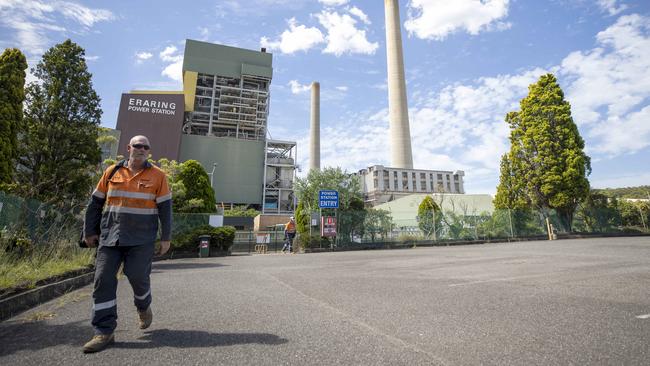
Calabria is firmly of the view that Australia needs to accelerate the transition to renewables, but a capacity mechanism – where ageing coal plants are paid to have capacity available – will minimise risk of a chaotic path.
“Right now it’s an infrastructure challenge. We will need to get more renewables in the system. The transmission will need to be built and construction will need to be completed,” he says.
“It will also mean as more renewables come in and it continues to play a role where prices change within the day that has the prospect of accelerating coal faster than anyone wants to in the absence of the right policy settings.
“What we would say is that you need a capacity mechanism to really make sure this firming generation is in place sooner rather than later so you know it’s available as you move to the new lower emission world.”
Anyone thinking it’s the nation’s power companies revealing windfall profits from the surge in prices only need to look through the numbers of Origin. AGL, which is scheduled to hand down its results on Friday, is likely to show significant pressure, as well as its own self-inflicted problems.
Earnings as Origin’s electricity generation business collapsed nearly 77 per cent last year to $207m as it was forced to pay more for coal and gas. The profit margin in power generation was 2.9 per cent from 12.6 per cent last year.
Some days it is a miracle the lights stay on, with persistent delivery issues in recent months from Origin’s key coal supplier Centennial to its Eraring plant in NSW and rail bottlenecks forcing it to wade into the expensive spot market.
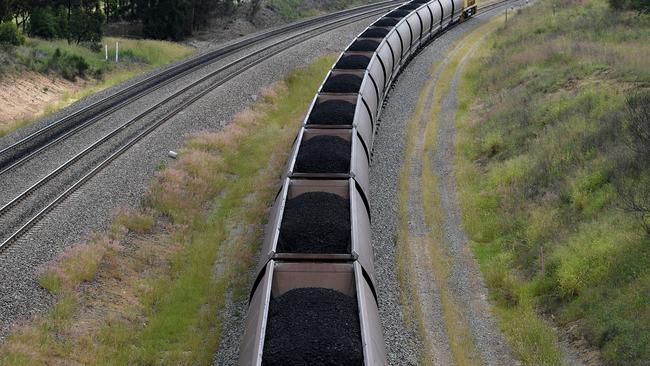
Pressure remains on the business with electricity spot prices that reached a high of $400/MWh in June falling to around $150/MWh in recent weeks through a combination of renewables and coal capacity coming back on line.
But coal and gas prices for both export and domestic markets continue to push record highs.
It is operating in a national market where certainty has long gone out the window and the pricing levers available to most day-to-day companies to recoup costs don’t apply in the energy game.
At the same time the retail market for power is coming under extreme pressure with a handful of smaller players that haven’t locked in long-term wholesale supply failing, leaving Origin as a retailer of last resort in some markets.
The bad news for all electricity customers is that more price rises are likely to come. The cut off for this year’s pricing reset is May and wholesale prices have continued to surge into July and August which means they will be calculated as part of the averages in next year’s price reset. Calabria has warned of a “material uplift” in prices.
Origin’s rival AGL is going through deep structural and management stresses including its aborted attempt at a demerger.
Calabria won’t be drawn on this, but points to the strength of Origin’s integrated model combining the generation and retail business and having exposure to the cash distributions of its 27.5 per cent stake in the Australia Pacific LNG export project. This LNG hedge – which also directs gas into domestic markets as well as exports – generates cash to fund the significant investment in the renewables shift.
“It provides you with the ability to invest capital into new forms of energy and navigate the transition,” Calabria says.
–
Transurban overhaul
One of Craig Drummond’s first jobs as incoming chairman of Transurban is to move ahead with succession planning with chief executive Scott Charlton now in his 10th year at the toll road major.
Drummond takes over as chair – his first appointment since retiring from executive life last year – following Transurban’s annual meeting on October 20.
He replaces Lindsay Maxsted who took on the role in August 2010. Maxsted oversaw the transition from former chief Chris Lynch to Charlton who has since turbocharged Transurban’s national expansion through a string of big-ticket acquisitions and road extension developments.
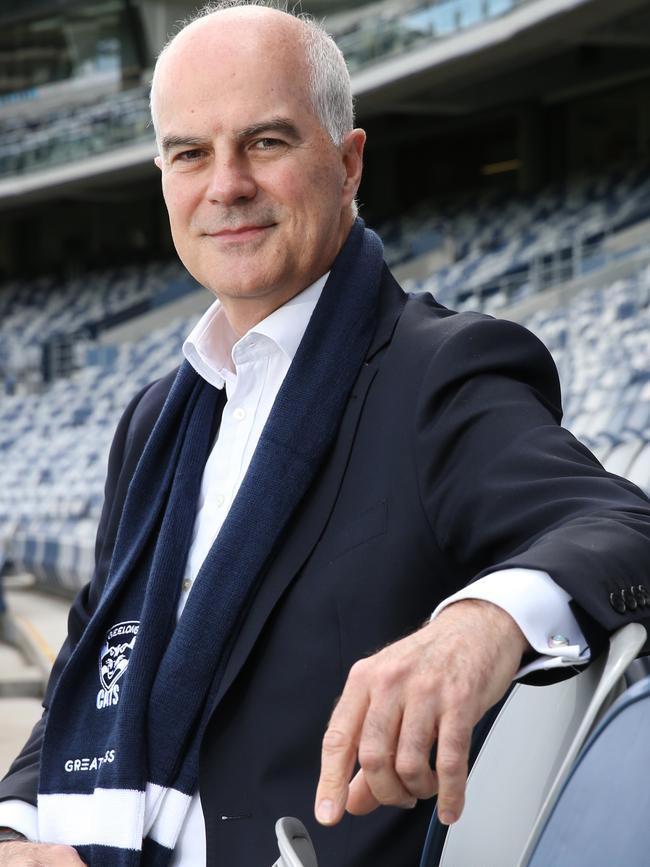
Drummond has a string of internal candidates to test, including former investment banker turned chief financial officer Michelle Jablko and WestConnex boss Andrew Head. Transurban has tended to tap outside talent as chief executive, including Charlton who joined from Lendlease where he was chief operating officer at the time.
The appointment of the well-connected Victorian as chairman also suggests that Transurban is some way from being in the clear over its already massively over-budget West Gate Tunnel project.
As Geelong Football Club president, Drummond also has skin in the game in seeing the completion of the West Gate project which promises to unclog congestion from the west. Two of the Cats’ home games are played at the MCG.
Transurban and Victoria’s Andrews government have agreed to split the difference by injecting a further $3.7bn in the troubled mega-project while pushing back the completion date to 2025. Around 30 per cent of the tunnelling is so far done but through the troubled opening of the Burnley tunnel two decades ago Transurban has a history of problems with its Victorian projects. There will be plenty of stakeholder management to come for Drummond.
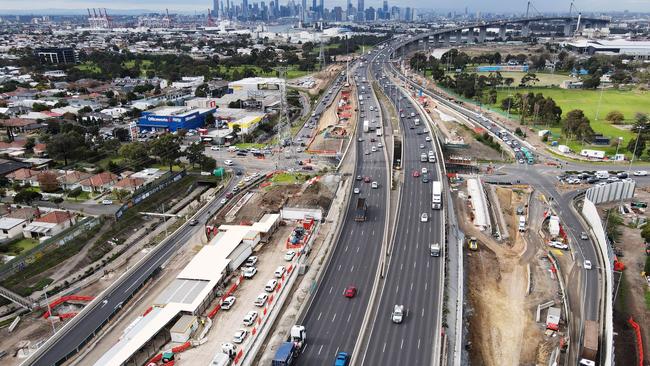
Drummond is the astute former JB Were banking analyst who headed up Goldman Sachs in Australia, Bank of America and held the CFO role at NAB, before being poached to run Medibank Private. Goldman Sachs for a period was also an adviser to Transurban when it got a big step up through the acquisition of the Queensland Motorways portfolio in 2014.
johnstone@theaustralian.com.au
More Coverage
Originally published as Behind Origin Energy boss Frank Calabria’s call to keep the lights on





